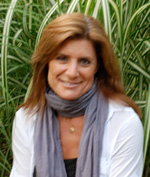More than 75 Chicago small business owners recently walked away with ideas about how to green their operations and save money after attending a Wicker Park meet-up with sustainable vendors and organizations.
In late March, the Wicker Park Bucktown (WPB) Chamber of Commerce organized a half-day Green Business Resource Fair for its members and others to meet more than 30 green vendors, according to Adam Burck, the chamber’s executive director.
Mr. Burck joined with other community partners to launch the fair, including chambers of commerce and merchant groups from nearby Logan Square, West Town, Lincoln Park, and Old Town. The event was held at the non-profit ReBuilding Exchange in a vast warehouse on Ashland Avenue near Bucktown’s eastern edge.
The WPB chamber that day unveiled a new green initiative intended to inspire local businesses to become more sustainable. On its website, the chamber lists about 30 ways business owners can green their operations. When at least 10 of them are adopted, they will be noted as a WPB Green-designated business on the chamber’s website and they’ll have the option of putting a promotional sticker on their front door.
The rows of tables set up at the fair represented a who’s who of green-oriented service providers and groups in Chicago. They included: Green Wheels, Christy Webber Landscapes, Consolidated Printing, GreenChoice Bank, Foresight Design Initiative, CNT/CNT Energy and the Chicago Conservation Corps.
There was cool eye candy there too: i-Go Car Sharing brought a Nissan Leaf electric car from its fleet; Icon Modern encouraged people to lounge in their sustainably-sourced furniture; and Upper Ground, a vertical landscaping company, drew lots of interest with its glass-encased beehive.
Crain’s spoke with Mr. Burck about the recent event and his plans for future green endeavors for his group’s members and the surrounding community.
Crain’s: What was the main objective of the fair?
Mr. Burck: I’ve been at the chamber a year and a half and one of the challenges the board placed on the newly-formed green committee after I arrived was to develop new ideas for helping members become more sustainable. The idea for the fair came out of those developments. We also came up with the WPB Green designation as a way to encourage companies to start on the road to being green.
Crain’s: What were some of the most useful things business owners learned from attending the fair?
Mr. Burck: Many of them didn’t know about ComEd’s Small Business Energy Savings Program and all the different initiatives. Some people discovered green vendors in their own lines of business they didn’t even know existed. For example, some restaurant owners weren’t familiar with The Green Chicago Restaurant Coalition.
During a panel discussion, we discussed some of our SSA (Special Service Area) initiatives, including a pilot recycling program. We’re piloting a shared recycling dumpster between two businesses to show that companies can do this affordably.
Many business owners also didn’t realize how cheap it would be to make some of these changes and have such a big impact on their energy consumption and costs. For example, exit signs have to be on all the time, according to (city) code. There’s two costs associated with that: energy and ongoing maintenance to constantly replace the bulbs. By putting in an LED retrofit for those exit signs, (which was offered by one of the vendors and is subsidized in part by ComEd), energy consumption will be reduced while you’re saving money. The LED bulbs can last a minimum of 10 years. And if you forget to change the standard bulbs and that’s found during an inspection, you’ll end up paying fines. So there’s a potential cost savings there too with a retrofit.
Crain’s: Do you think other Chicago business groups will replicate this kind of fair and will the WPB Chamber do it again?
Mr. Burck: These kinds of events should be a regional thing and could be replicated anywhere. We invited neighboring chambers to promote it and invite their members and they were all glad to participate. It makes sense to partner with others. We plan to do this again and we’re meeting this week to discuss ways to make it even better next time around. This event exceeded our attendance expectations (many locals working in the green industry turned out to network too), but next year we’ll consider holding it on a week night or weekend day so even more people can come.
Also, There are some businesses in our area that are struggling and adopting green initiatives can really help their bottom line. If companies don’t have green on their radar because they’re just trying to keep their doors open, they’d learn that going green will help their bottom line. More of those businesses should come in the future.
Crain’s: Are there other upcoming green events you’re working on?
Mr. Burck: Our next sustainable event is the Green Music Fest, planned for June 23 and 24. A new Green Village will be part of the music fest this year, which will be a designated area that will have lots of educational demonstrations of ways the general public can go green. We’re also greening the fest with a robust recycling program that will be run by Bright Beat (a local green event consulting firm). We want these events to be as sustainable as possible, too.
In other green news:
Mayor Rahm Emanuel announced the city of Chicago has saved $2.2 million in recycling service costs during the first six months of competitive bidding, paving the way for a complete citywide recycling expansion by the end of 2013. Beginning in 2013, the city will roll out blue cart recycling services to the 340,000 remaining households in Chicago.




